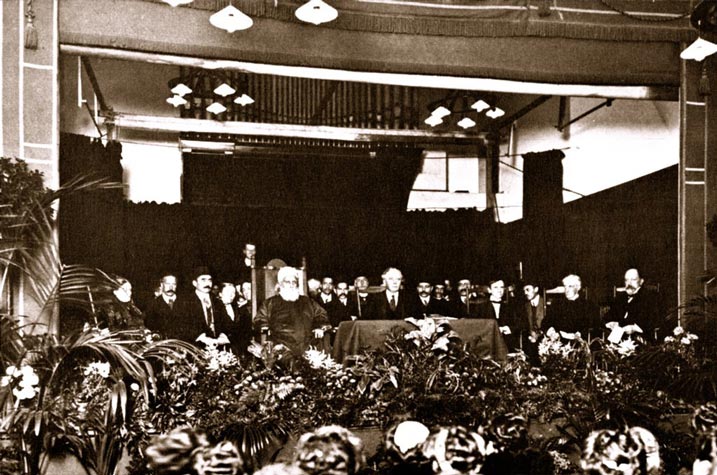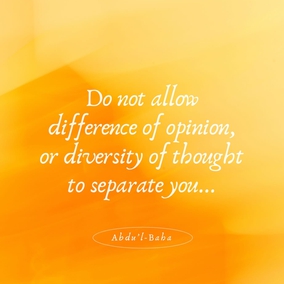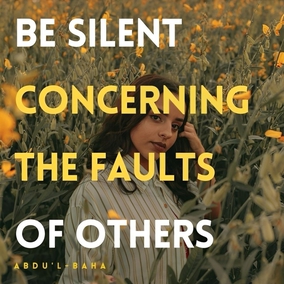The views expressed in our content reflect individual perspectives and do not represent the authoritative views of the Baha'i Faith.
Only one of the central figures of a world religion has ever visited the modern West: Abdu’l-Baha.
Named Baha’u’llah’s successor and the exemplar of the Baha’i teachings, Abdu’l-Baha articulated Baha’u’llah’s world-embracing vision and established the nascent Faith as a powerful new force for social change and the renewal of religion.
Released from prison after the Young Turk revolution in the Ottoman Empire in 1908, Abdu’l-Baha began to travel, first to Europe and Britain, and then to North America. He was 64 years old, a prisoner of conscience for his entire adult life, with no formal schooling, no experience in the modern urban world, and no secular position or power.
And yet, his visits to the West drew enormous crowds, audiences with the political and philosophical leaders of the time, and massive media attention. He gave hundreds of addresses, speeches, interviews and talks, all focused on the Baha’i ideals of unity. He advanced the concept of the essential harmony and cohesion of all the world’s major religions, repeatedly emphasizing the commonalities of Faith. He advocated for a spiritual approach to the world’s endemic social problems, laying out the Baha’i solutions: international peace backed by a global government; an end to violence of all kinds; the complete emancipation of women; uncompromising racial equality based on the overriding principle of the oneness of humanity; the agreement of science and religion; and his insistence that religion must become the cause of love and unity among all peoples or face extinction.
Most of all, however, Abdu’l-Baha’s visits to the West centered around that timeless and mystical call God has repeatedly delivered to humanity in all the great Faiths—to transcend the self and become selfless:
O son of spirit! Burst thy cage asunder, and even as the phoenix of love soar into the firmament of holiness. Renounce thyself and, filled with the spirit of mercy, abide in the realm of celestial sanctity. – Baha’u’llah, The Hidden Words, pp. 35-36.
Regarding the statement in The Hidden Words, that man must renounce his own self, the meaning is that he must renounce his inordinate desires, his selfish purposes and the promptings of his human self, and seek out the holy breathings of the spirit, and follow the yearnings of his higher self, and immerse himself in the sea of sacrifice, with his heart fixed upon the beauty of the All-Glorious. – Abdu’l-Baha, Selections from the Writings of Abdu’l-Baha, p. 207.
Abdu’l-Baha asked everyone to widen their focus. He encouraged each person he met to always consider the spiritual consequences of their deeds. He constantly urged people, through his actions, to serve others. He repeatedly and gently suggested that human maturation involves an expansive consciousness of the oneness of all. He said, over and over, that the active realization of the unity of humanity means ignoring the selfish promptings of our lower nature and working to replace them with the selfless promptings of our higher nature.
During his first trip to London, England, Abdu’l-Baha recounted this imagined, symbolic fragment of dialogue between human beings and God’s messengers:
Always, man has confronted the Prophets with this: ’We were enjoying ourselves, and living according to our own opinions and desires.
We ate; we slept; we sang; we danced. We had no fear of God, no hope of Heaven; we liked what we were doing, we had our own way. And then you came. You took away our pleasures. You told us now of the wrath of God, again of the fear of punishment and the hope of reward. You upset our good way of life.’
The Prophets of God have always replied: ’You were content to stay in the animal world, We wanted to make you human beings. You were dark, We wanted you illumined; you were dead, We wanted you alive. You were earthly, We wanted you heavenly.’ – Baha’i World, Volume 13, p. 1187.
You May Also Like
Comments


















Baha'i love
Paul
PS (Given that for a decade as a younger and healthier being I had the undeserved honor of promoting inter alia equal rights for men and women in various universities in China you'll appreciate that I never decry any of the eternal principles of the Faith.)